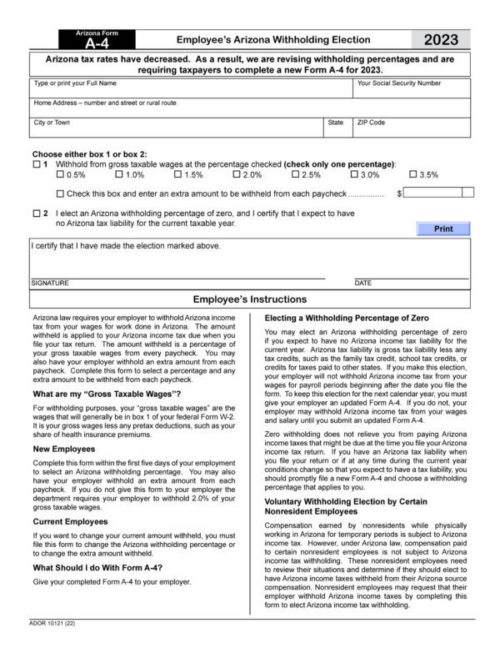
Appealing an IRS Decision
You have the right as a taxpayer to appeal an IRS decision in an independent forum. Learn more about your rights regarding IRS decision appeals.

You have the right as a taxpayer to appeal an IRS decision in an independent forum. Learn more about your rights regarding IRS decision appeals.

The holiday season is the most popular time for companies to offer gifts to their employees. Although, there may be other occasions that might be gift worthy too. What are some of the ways a business can build goodwill with its employees?

Beginning January 1, 2024, businesses receiving more than $10,000 in cash must report transactions to the U.S. government by e-filing Form 8300 instead of filing a paper return.

Effective August 1, 2023, the U.S. Citizenship and Immigration Services (USCIS) will release a new Form I-9, used to check employment eligibility verification. Beginning November 1, 2023, all employers must use the new Form I-9.

Obtaining an Employer Identification Number (EIN) is essential for sole proprietorships, corporations, partnerships, and limited liability companies. In some cases, there may be reasons for obtaining a new EIN for your business.

If you are running a company, you may be experiencing a lot of uneasiness. What are the thoughts or issues chief financial officers (CFOs) are facing today?

The Arizona Department of Revenue (ADOR) encourages taxpayers to keep well-organized records and to securely discard old documents.

Effective January 1, 2023, Arizona’s minimum wage increased from $12.80 to $13.85. According to the Industrial Commission of Arizona, the $1.05 increase in minimum wage is based on the increase in inflation between August 2021 and August 2022, as published in the U.S. Bureau of Labor Statistics’ Consumer Price Index.

It seems contrary to long-standing policy, but in a recent ruling, the Supreme Court decided that in certain situations, highly compensated employees (HCEs) can earn overtime pay.

Effective for 2022, private companies that issue financial statements prepared under U.S. GAAP are required to conform to a new lease accounting standard affecting their 2022 financial statements. Changes from the new lease accounting standard should be reflected in annual financial statements issued in 2023.

Arizona’s Individual Income Tax Withholding Form, Arizona Form A-4, has been updated to reflect Arizona’s lower individual income tax rates. By January 31, 2023, every Arizona employer is required to make this form available to its Arizona employees.

Additional benefits on top of an employee’s regular pay may be taxable. The rules are complicated and employers should familiarize themselves with the requirements. Do you know which benefits are taxable?

The IRS provided further details on additional transition relief for certain domestic partnerships and S corporations preparing the new schedules K-2 and K-3 to further ease the change to these new schedules.

January 31 is a significant date for businesses to perform certain tasks and start preparing for their tax filings. Businesses should keep in mind that state taxing authorities have their own set of due dates. It is never too early to work with your accounting and payroll staff to make sure your end-of-year reporting is accurate and timely.

As 2021 comes to a close, it is a good time to create a tax checklist for items needed to file individual and business taxes.

The end of the year always brings possible last-minute tax changes, which is especially true for 2021. New legislation may mean major changes starting in 2022, but other proposed bills, such as new capital gains and qualified dividend tax rates, may take effect retroactively.

With remote and hybrid work arrangements, employers should be very deliberate when communicating and executing policies relating to an employee’s work location. Individual taxpayers need to be familiar with tax laws in their resident state and businesses should be aware of tax laws in all states they operate.

Before the adoption of ASC 606, there was no formal standard for the recognition of revenue across industries. Learn how this important standard has affected the construction industry.

The Supreme Court’s ruling in South Dakota v. Wayfair, Inc. changed the standard for when states need to collect sales tax from entities doing business in the state. Before the decision, states taxed only companies with a physical presence in the state, but they now tax all those with an economic presence.

Countries around the globe are trying to stem the “rush to the bottom,” which has multinational companies moving their corporate headquarters to lower their tax bills. According to the International Monetary Fund, the result of this tax strategy is a loss of worldwide government revenues estimated between $500 and $600 billion annually.

In May 2021, the Department of Labor (DOL) withdrew a rule clarifying the standard for employees versus independent contractors under the Fair Labor Standards Act. According to SHRM, the withdrawn rule would have applied a more-limited economic-reality test.

Sponsors of retirement plans are required by law to report information to the IRS, the Department of Labor (DOL), and Pension Benefit Guarantee Corporation (PBGC). Your plan type, business size, and circumstances affect the type of information, forms, and disclosure requirements.

If you are a U.S. citizen or resident alien living in a foreign country, you are still subject to the same U.S. income tax laws that you would be if you lived in the United States.

It has been a challenging year, but one thing that has not changed is taxes. Fortunately, Arizona businesses can take advantage of certain tax deductions.

The Arizona Department of Revenue (ADOR) issued a reminder about legalities surrounding bingo and raffles in the State of Arizona. In the State of Arizona, all forms of online gambling are illegal.

Americans with certain foreign financial assets have special tax reporting responsibilities. The Foreign Account Tax Compliance Act (FATCA) requires foreign financial institutions and certain other nonfinancial foreign entities report on the foreign assets held by their U.S. account holders or be subject to withholding on relevant payments.

The IRS reached a major milestone by accepting Form 1040-X, Amended U.S. Individual Income Tax Return, electronically. Now, taxpayers can correct tax returns with fewer errors and expedite processing.

The IRS is experiencing delays in processing paper tax returns due to limited staffing. Taxpayers are strongly encouraged to file electronically through a CPA or accountant or tax software provider. Paper returns are processed in the order they are received.

In March 2020, due to COVID-19, the IRS automatically extended the filing deadline for tax returns from April 15 to July 15, 2020. The extension applied to all individual returns, trusts, and corporations. The Arizona tax filing deadline was also extended to July 15, 2020.

Are companies required to offer COBRA to employees that lose coverage under a group health plan due to a furlough relating to COVID-19?

The April 15, 2020 deadline for filing and paying Arizona and federal income taxes for the 2019 calendar year is July 15, 2020. The Arizona due date for first quarter estimated tax payments has not changed and remains April 15, 2020.

On March 20, 2020, the Arizona Department of Revenue (ADOR) announced it moved the deadline for filing and paying state income taxes from April 15 to July 15, 2020 following direction by Governor Doug Ducey.

As of January 31, 2020, employers should use the new Form I-9, Employment Eligibility Verification, released on October 21, 2019. The form’s version is located at the bottom left corner, with the expiration date of October 31, 2022 in the top left corner.